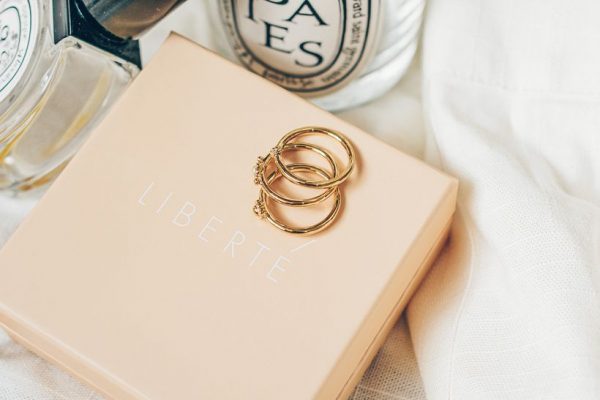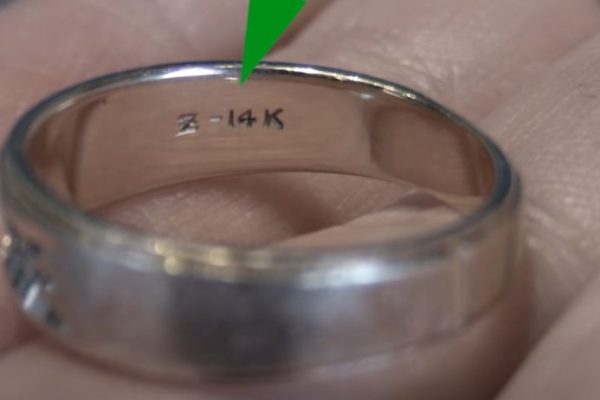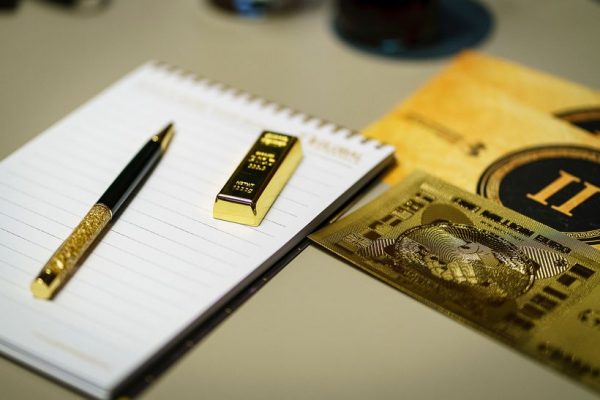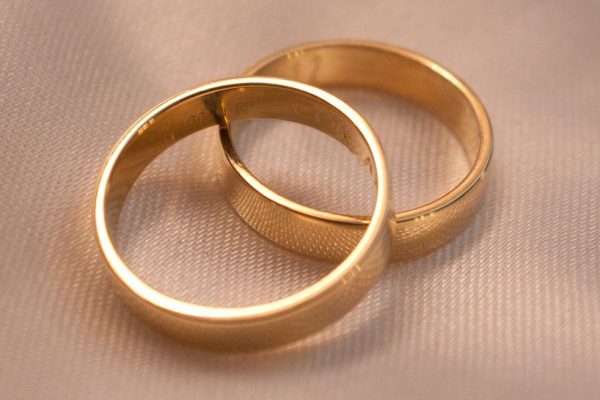Tarnishing is the process of corrosion that produces a dull, matte finish on the surface of some metal.
While pure gold cannot tarnish, gold jewelry is often mixed with other metals, and this makes it susceptible to tarnish.
Here’s what you need to know about tarnishing in 10k gold.
Does 10k Gold Tarnish?
Yes, 10k gold tarnish. 10k gold still has a high resistance to tarnishing compared to other types of metals like copper and silver.
You may visit any jewelry store and have your old 10k jewelry polished by them, making it look like new!
10k gold is an alloy made of 10 parts gold and 14 parts other metals, usually copper, zinc, and silver.
The K stands for Karat, which is a measurement of how much gold is in an alloy. The higher the karat, the more gold there is in the alloy and the more resistant it will be to tarnishing.
The percentage of gold in 10k gold is lower than other types of gold like 14k gold and 18k gold.
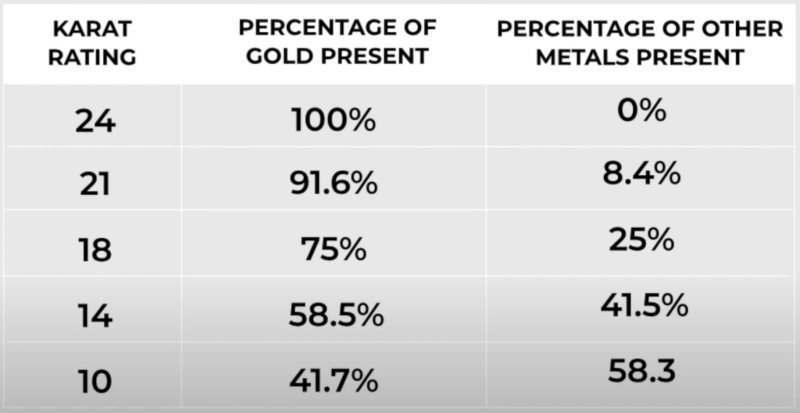
Does 10k White, Yellow, Rose Gold Tarnish?
Unfortunately, even colored gold tarnishes over time. There are different colors of gold, so 10k gold can come in white gold, yellow gold, and rose gold.
The coloring is achieved by adding different metals to gold, and it is these other metals that are more prone to tarnishing.
Copper is often used to give gold a pink or rose hue.
Again, tarnishing is a process where the copper reacts with oxygen and moisture in the air to form a green patina on the surface of the metal.
This patina can eventually cover the entire piece if it’s not cleaned regularly.
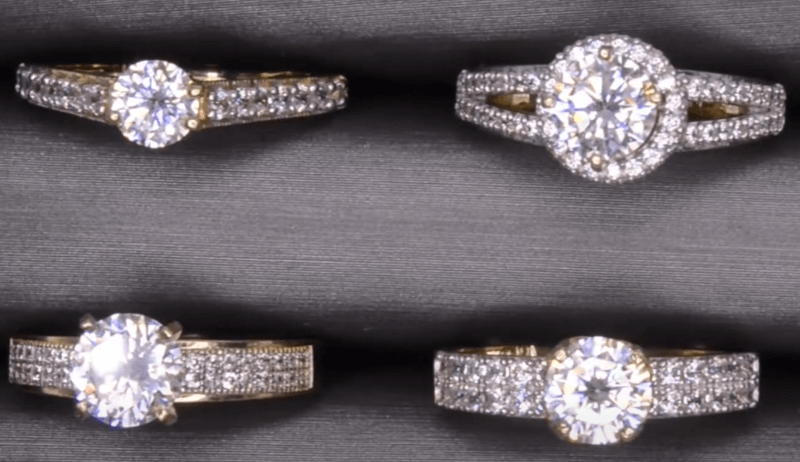
Does 10k Solid Gold Tarnish?
10k solid gold can tarnish, but the rate at which it does so is very slow.
The jury is still out on this one. Some say solid gold tarnishes, while others claim that because gold is a non-reactive metal, it can’t tarnish.
The circumstances under which this will happen include if the gold is exposed to sulfur or other chemicals in the air.
Or if it’s mixed with other metals (such as silver) as explained, or if it’s subject to friction.
The process of tarnishing in 10k gold can be sped up by many factors, much like most metals.
Why Is My 10k Gold Tarnishing?
Moisture
As already mentioned, moisture in the air can react with the other metals in 10k gold and cause it to tarnish.
So if you live in a humid climate or if you sweat a lot, your 10k gold jewelry may tarnish faster.
Chemicals
Certain chemicals can also cause 10k gold to tarnish. Swimming in chlorinated water or exposure to household cleaners can trigger 10k gold tarnishing.
Soap
When you wash your hands, the soap can leave a film on your skin that reacts with the metals in 10k gold and causes it to discolor.
Cosmetics
Many cosmetics contain chemicals that can react with the metals in 10k gold and cause it to discolor.
Body oils
Your skin produces natural oils that can also cause 10k gold to tarnish.
These oils can mix with the cosmetics on your skin and create a film that reacts with the metals in 10k gold and causes it to discolor.
So again, to avoid tarnishing, it’s best to remove your 10k gold jewelry before coming into contact with any of these triggers.
You should also clean your 10k gold jewelry regularly with a gentle jewelry cleaner to remove any dirt, oils, or cosmetics.
How Long Does it Take for 10k Gold to Tarnish?
It can take anywhere from a few months to a few years for 10k gold to tarnish, depending on a number of factors, such as:
The alloy used in the gold
The presence of other metals in the gold will affect how quickly it tarnishes. For instance, if there is a higher percentage of copper in the alloy, it will tarnish more quickly.
How often the gold is worn
If you wear your 10k gold jewelry every day, it will obviously tarnish more quickly than if you only wore it on special occasions.
The body chemistry of the person wearing the gold
Some people’s skin is more acidic than others, and this can cause the gold to tarnish more quickly.
How the gold is stored
If you store your 10k gold jewelry in an airtight container, it will take longer to tarnish than if you just left it out in the open.
What Jewelry Does Not Tarnish?
Here are some jewelry that do not tarnish:
- Stainless steel is an alloy of steel and chromium, and the chromium gives it its resistance to tarnishing.
- Titanium is also a very strong metal that is resistant to tarnishing.
- Platinum is a precious metal that is also resistant to tarnishing.
- Rhodium is a rare metal that is often used to coat other metals, such as gold, to prevent them from tarnishing.
- Palladium is another precious metal that is resistant to tarnishing.
There are a number of reasons why some jewelry will not tarnish.
For example, silver is a non-reactive metal, so it is more resistant to tarnishing than most. This is one of the reasons why silver is often used in jewelry.
Final Words
In conclusion, 10k gold tarnishes because the gold is mixed with corrosive metal.
However, it’s easy to prolong the shine of your gold jewelry by taking proper care of it.
- Store it in a cool, dry place away from chemicals and moisture.
- When you’re not wearing it, keep it in a jewelry box or bag.
- And clean it regularly with mild soap and water.
Thanks for reading! Please share after leaving a comment.

